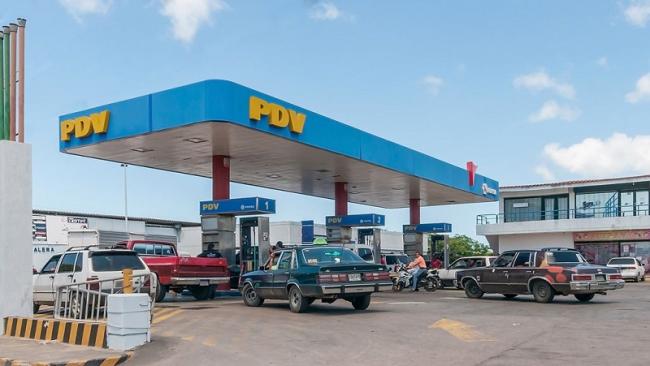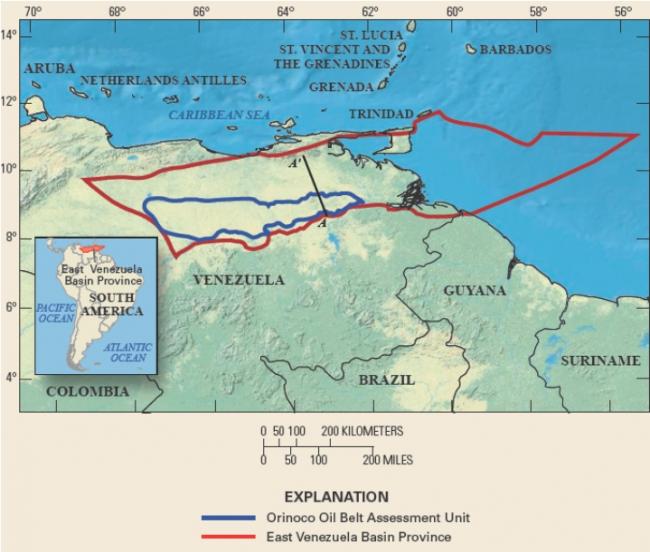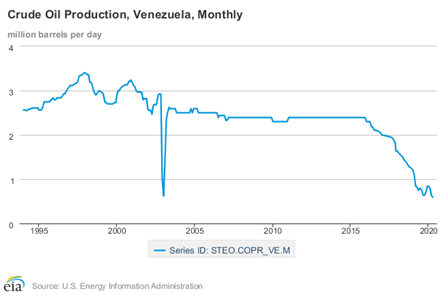
President Nicolás Maduro seeks to rapidly boost Venezuelan oil production by one million barrels per day (bpd), threatening to ravage the ecologically sensitive Orinoco region. To achieve the increase, he would reverse Chávez’s oil reforms, which extended Venezuelan sovereignty over its natural resources and captured super-profits that would otherwise have flowed to transnational oil companies.
Chávez was an outspoken critic of capitalism and global warming, telling the Copenhagen summit on climate change in March 2013 that “climate change is undoubtedly the most devastating environmental problem of this century,” and that “current human activity exceeds the threshold of sustainability, endangering life on the planet.” In the same speech he warned that global inequality remained a major obstacle to achieving a sane and rapid reduction of greenhouse gas emissions, as globally “we are profoundly unequal.”
Yet, even in the Chávez years Petróleos de Venezuela (PDV), the state oil company, and the government viewed the country’s massive reserves in the Orinoco region as ripe for expansion. Plan Siembra Petrolera (Sow the Oil Harvest) of 2011 planned to boost oil output to 4 million barrels a day (bpd) by 2014 and 10 million by 2030. PDV never reached new production goals and increasingly relied on the Orinoco region to maintain output near the levels before 2002. Meanwhile, the government borrowed against future production to maintain development programs.
Maduro’s reforms will not only deepen Venezuela’s oil dependency, they also will slow regional efforts to decarbonize and shift oil profits from the government and PDV to transnational oil companies. Besides lowering royalties and taxes, the current PDV proposals would relieve companies of financial responsibility for environmental destruction and any taxes imposed by local communities near production sites. The central government would assume any such costs in the future. In 2010, a coalition of environmentalists warned that the expanded production in the Orinoco region threatened the environment and communities in 55 million square kilometers of the highly fragile, biodiverse region, especially its wetlands.
Venezuela’s National Assembly, now under control of the United Socialist Party of Venezuela (PSUV), will almost certainly approve the proposals. Oil nationalists and environmentalists have raised their voices in opposition, but they have gained little traction in a country beset by cruel sanctions and where oil earnings seem the only lifeline to overcome a devastating socio-economic crisis.

Venezuela leads the world in proven oil reserves, but the vast majority are very heavy deposits (some as thick as tar) in the Orinoco Belt (see Figure 1). The zone covers almost 112,000 square kilometers in the eastern region around the Orinoco River. Maduro created a “Strategic Development Zone Arco Minero de Orinoco” in 2016 without the constitutionally required social and environmental impact studies.
Maduro justifies his about-face on Chávez’s reforms as a response to U.S, and international sanctions, many of which have targeted the oil industry. An “Anti-Blockade Law,” approved by the country’s Constituent Assembly in October, authorizes the president to suspend the Constitutional and legal impediments in oil laws, including the 1975 nationalization law requiring majority “ownership, management and administration” of any extractive enterprises. The Constituent Assembly also authorized Maduro to negotiate contracts with foreign investors behind closed doors.
The PDV “restructuring” proposal converges with positions advanced by Henrique Capriles (the opposition’s presidential candidate in 2012 and 2013), Leopoldo López, and Juan Guaidó (the self-proclaimed president), except that no opposition proposal would eliminate legislative oversight over exploration and drilling contracts, as Maduro already has virtually obtained.
A presentation by PDV’s Executive Office for Planning to a presidential commission tasked with developing proposals to “restructure” the state company in order “to recuperate production of one million barrels of production of crude oil and gas as quickly as possible,” made clear the full shape of changes to come. PDV’s recommendations closely mirror the neoliberal apertura petrolera (oil opening) of the 1990s, which sought to raise productions by reducing royalties and taxes heavily, relaxing national ownership and control over joint ventures between PDV and foreign companies, and transferring dispute resolution from national courts to international forums.
PDV executives sold the apertura to a political class desperately in need of export revenues to stem 15 years of economic and political crisis that began with the collapse of the OPEC oil boom of 1973 to 1983. Foreign capital returned to the oil fields for the first time since 1975 into exploration and exploitation under fiscal terms that reduced Venezuela’s percentage “take” from profits to less than in the pre-World War II era.
Production did increase from roughly 2.5 million to 3.5 million bpd in the 1990s, most of it from joint ventures in four major new fields in the Orinoco Belt. Some of the oil in the Belt is so dense that Venezuela labels it as bitumen, or “liquid coal,” and excludes it from oil that counts against its OPEC production quotas. Like coal, bitumen is largely used in power plants and leaves a larger carbon footprint than lighter oil.
With bitumen, Venezuelan production had risen to approximately 2.9 million bpd, when Chávez assumed office in 1999. But the economic benefits of increased production were greatly diminished by the generous fiscal concessions. They disappeared almost entirely for a few months in 1998, when the global recession associated with the “Asian contagion” sent oil prices plunging—a factor that contributed to Chávez’s election that year.
Chávez’s Nationalist Oil Policy
In November 2001, Chávez revised the apertura’s generous fiscal terms to ensure that new production would more fairly benefit Venezuela. PDV executives fought back, supporting the short-lived coup of April 2002 and then shutting down production and exports for three months that December. The stoppage resulted in the three-month trough visible in Figure 2. Production recovered, but at the loss of considerable human capital as 20,000 skilled workers and professionals were discharged for participating in the attempt to force Chávez out.
As prices soared after 2002, they exceeded the levels under which apertura-era terms allowed Venezuela to renegotiate contracts. In 2006 and 2007, the government raised royalties and tax rates, and required foreign companies that signed contracts in the 1990s to “migrate” to the new terms that restored majority ownership (sometimes at 60 percent) and operational control over joint ventures to PDV. This forced migration into compliance with the 1975 law creating PDV is too sweepingly called “nationalization.”

Celebrating Maduro’s plan to reverse Chávez’s policies, Forbes Magazine crowed that PDV “used to have foreign partnerships. PSUV kicked them out.” Chávez did no such thing. Migrating companies were compensated; only those who resisted were forcibly expropriated and compensated. Service agreements and other contractual arrangements, which in the apertura era were disguised partnerships to evade provisions of the 1975 nationalization law, were brought into conformity.
Chávez’s priority for PDV was to deploy the company’s human and financial resources in support of his social programs and economic plan for “endogenous development.” Rising prices were certainly a factor, but just as important were his oil reforms that raised royalties, taxes, and state ownership on joint ventures, all of which allowed him to capture and expend oil super-profits to achieve remarkable social and economic improvements for the majority poor, while also maintaining subsidies to capitalists. The biggest drain on bonanza earnings were commercial and financial companies that took advantage of the overvalued bolivar in boom times.
At the same time, PDV lent its material and human resources to support “exogenous development” programs, buying from and aiding cooperatives, worker managed industries, and other efforts to build twenty-first century socialism. The oil company was tasked with importing and distributing food to combat shortages blamed on economic sabotage by agribusinesses. When oil earnings were not enough to do both, Chávez cut deeply into company capital reserves and into reserve fund intended to prepare for the inevitable downward shift in oil prices. There was left little to recapitalize PDV, much less to meet new production goals. As Figure 2 shows, production remained flat, around 2.5 million bpd, throughout most of the Chávez presidency.
The precipitous decline in oil production since 2014 is certainly made worse by Washington’s economic war on Venezuela. However, even at severely low levels of production the country is having difficulty transporting its oil to market. For example, Venezuela’s exports to China are complicated by a dearth of oil storage facilities. Having exhausted the counter-cyclical fund to prepare for price declines, Chávez left Maduro with limited capability to respond the PDV’s decline.
PDV’s decapitalization obstructs its capacity to meet environmental responsibilities. In 2008, PDV estimated it would require $1.8 billion just to decontaminate and clean up old wells and production accumulated over decades. Today, the environmental damage has mounted and generated almost daily reports of dangerous accidents and environmental degradation. Due to a series of spills and refinery breakdowns, since late July oil-polluted waves have reached the northwestern coast Venezuela. Chloé Luvergnier of France24 attributes this defilement of nature to “frequent oil spills caused by a faulty system that includes crumbling oil facilities, a lack of trained staff, and the disregard of regulations.”
Maduro Doubles Down on Oil
Maduro enjoyed boom oil prices and steady export levels for little more than a year after assuming the presidency in April 2013. Venezuela’s oil production has fallen drastically since 2015 (Figure 2). By June 28 2020, production stood at only 422,400 barrels a day. Much of the drop after 2015 can be attributed to sanctions introduced under the Obama administration and ruthlessly ratcheted up by Trump. The sanctions cut Venezuela off from over $10 billion in reserves and assets which could help stabilize PDV—though Maduro may very well have opted for his own apertura regardless of these pressures.
The PDV proposal to the presidential oil reform commission relies heavily on a study produced by Rystad Energy and the Boston Consulting Group, two management consulting firms that advise venture capital, engineering, and research and development companies. So it hardly surprises that they advise countries dependent on extraction to compete for investment rather than to maximize remuneration from companies for access to the world’s most naturally productive territories. The Rystad/BCG authors counsel Third World oil exporters to lower their “take” from profits to induce new investment.
Rystad/BCG’s calculations of the “state’s take” were prominent in PDV’s argument for reducing the fiscal burden on investors. The consultants’ show (accurately) that host states (excluding the Gulf Region) “boosted their shares from $9.90 per barrel to $30.40” in the era of unprecedented high oil prices (2001-2014). PDV’s executives took it upon themselves to estimate Venezuela’s take at 9 to 1. They are right, but it overlooks how the bountiful hydrocarbon deposits of the Global South generate high rates of profit, even where the state “take” is so high.
Venezuela cannot match Saudi Arabia’s estimated $3 cost of production, but its typical costs ($10 to $12 per barrel) compare very favorably to oil exporters outside of the Gulf region. One trade publication estimates that 80 percent of the world’s oil costs more than $20 per barrel to produce. Cost for fracking shale ($30 to $50) and mining oil sands ($85) in North America cannot compete with cost in Venezuela, even for bitumen. By my calculations (available upon request), the royalties, tax rates, and profit-sharing deals imposed by Chávez still typically left an after-tax profit of 28 percent for oil companies, well above an estimated 18 percent rate for all transnational companies.
PDV’s proposal would significantly reduce royalty and tax rates. In direct contradiction to the nationalization law of 1975, it would permit majority foreign ownership in the fields. Not only would these changes represent a retreat from sovereignty over natural resources, they would result in the state take falling to 3 to 1 (my calculation), and the company’s rate of profit would rise to 65 percent. PDV will have a new unit charged with negotiating exploration and drill contracts, now a function of the oil ministry.
Maduro need not wait for passage of the law by the National Assembly, again under PSUV control. He already has executive authority to negotiate new contracts secretly under provisions of the anti-blockade law passed by the Constituent Assembly, whose mandate ran out on December 31. National Assembly approval might somewhat lower the political risk for foreign investors, especially as the European Union no longer recognizers Guaidó as president. Chinese, Russian, and other investors will undoubtedly seek to migrate their operations to the new fiscal regime.
Stifling Nationalist and Environmental Dissent
Mining and drilling in the Orinoco Belt has attracted criticism from Indigenous groups, environmental groups, and local communities affected by extraction. On the economic front, several well-known oil-nationalists have tried to ignite public resistance to Maduro’s moves. However, it is difficult to convince most Venezuelans that relief can be achieved by any other strategy than reactivating export. The reasons go deeper than the current social and economic crisis. In contrast to most of Latin America, Venezuela lacks a mass movement capable of, as Daniel Aldana Cohen and Thea Riofrancos put it, “articulating inspiring visions of a socially and ecologically just world,” demanding a “Latin American Green New Deal,” and posing “massive and ongoing resistance…to extractive and megadevelopment projects.”
Regarding global warming, Alejandro Álvarez, general coordinator of the NGO Clima 21 in Venezuela, says, “I’ve met with many people, from very diverse groups, and it concerns me how the youngest folks have only a very basic knowledge on the subject, often inaccurate and sometimes twisted. This ignorance is even greater when it comes to the meaning for Venezuela.” Media stories about climate take on “an apocalyptic view” of global conditions alien to most Venezuelans, says Álvarez.
For Venezuelans, oil is deeply entangled with every facet of life. The ecological and economic crisis cannot be reduced to international sanctions or the dispute between Maduro and the opposition over the control of the government, says Emiliano Teran Mantovani of the Venezuelan Observatory of Political Ecology. “The whole network of oil conflicts is not only based on economics; it is not just about the appropriation of ‘strategic natural resources’ or the income obtained from the hydrocarbons industry…This contemporary form of oil-capitalism is grounded on the colonial/patriarchal domination of nature.”
Carlos Mendoza Potella, a prominent nationalist oil expert, acknowledges the devastation being wrought by U.S. sanctions, but he warns that Maduro’s bet on a wide opening in secret to foreign investment is “absolutely damaging to the national interest. And when I talk about the nation, I’m talking about the eternal ‘nation,’ about the future generations.”
Sociologist Edgardo Lander questions whether the country’s bounty of oil wealth can ever be harnessed to propel sustained social and economic development. He sees the current conjuncture as “the terminal crisis of the oil based extractivist model and clientelistic rentier state that has characterized Venezuelan society since the second decade of the last century.” On the one hand, the crisis is imbedded in “the ecological consequence of hydrocarbon extraction and its centrality to the consumerist culture, both in Venezuela and the wealthy capitalist societies.”
Washington’s economic siege only makes it more difficult for critical voices to be heard. In a speech to oil workers, Maduro defended his new power to negotiate oil contracts secretly. “There are a lot of things that cannot be discussed about PDV. This is like a war. Can you say where your army is going to advance? The people on the left have criticized PDV.…Haven’t they noticed the imperialist bombardment against the industry?”
Sagely and without shame, Maduro named his committee to “restructure” the PDV the “Comisión Presidencial Alí Rodríguez Araque.” Rodríguez, who died in 2018, was a fervent defender of Venezuelan sovereignty over oil throughout his long career as a guerrilla leader, a member of the committee overseeing oil in Congress in the Punto Fijo era, and as president of PDV, oil minister and close confident of Chávez in the Bolivarian era. As a member of the hydrocarbons committee of Congress in the 1990s, he was an outspoken often lonely critic of the apertura petrolera.
Just before his death in 2018, Rodríguez co-authored a paper calling for national unity against what he anticipated would be a return to the apertura. He lamented that the nationalization of 1975 seemed to have erased from poplar memory six decades of a valuable experience dealing with foreign capital’s voracious appetite for access to the country’s subsoil. Until 1975, oil policy generated vigorous political debate about how to defend national interests against imperialismo petrolero. Post-nationalization, with foreign capital apparently vanquished, such debate seemed to have faded away, and along with it the capacity of the oil ministry to monitor the activity of concessions.
Mendoza Potella argues that Venezuela should abandon high-cost production of heavy crudes and concentrate on building reserves and production of lighter, conventional crudes. We have “the potential to produce oil in modest quantities to supply our internal needs and generate moderate exports. That would allow us to put hard currency into the nation’s budget, thus helping our economy, which is in dire straits.” His views do not accord with the Green New Deal, but at least rolling back exploitation of the Orinoco would slow the pace of ecological devastation in the region.
The need of left governments in Latin America to rely on mining or oil seems like a “poisoned chalice,” acknowledges Luís Angosto-Ferrández in his study of Indigenous politics in Venezuela. But avoiding imminent global degradation and destruction “is only achievable with structural changes at a global level, and until these occur, I consider it unethical to put the blame on those countries that are weak links in a global chain.”
Daniel Hellinger is Professor Emeritus of International Relations. His text, Comparative Politics of Latin America, third edition, is published by Routledge.

